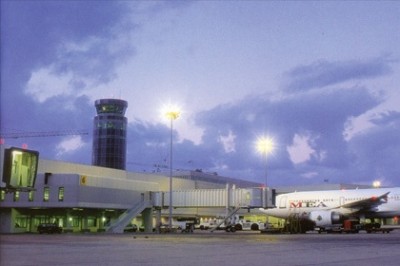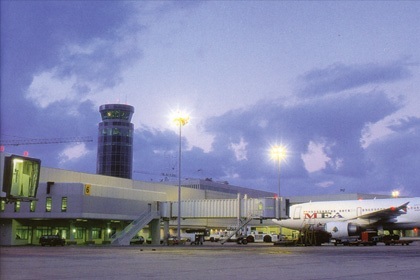 Air traffic controllers at Beirut airport are to hold a two-hour strike on Tuesday in protest at the Lebanese parliament’s failure to approve long-delayed public sector pay increases.
Air traffic controllers at Beirut airport are to hold a two-hour strike on Tuesday in protest at the Lebanese parliament’s failure to approve long-delayed public sector pay increases.
The increases were approved by Lebanon’s government more than a year ago but have been held up by political deadlock and fears that significant wage rises will put more strain on the state’s already widening budget deficit.
Air traffic controllers said on Sunday they would suspend work between 11am and 1pm (0800 GMT to 1000 GMT) on Tuesday in protest at the repeated delays to raising their pay.
The stoppage will coincide with the latest scheduled parliamentary session to discuss the proposed pay rises.
Lebanon’s Finance Ministry said last week that the 2014 budget deficit is expected to widen to $5.1 billion (Dh18.72 billion), or 10.7 per cent of GDP, even without the proposed public service pay increases.
On May 14, thousands of Lebanese teachers, civil servants and children rallied outside parliament in the biggest of a year of pay protests as the assembly debated a much-delayed bill on public sector salaries. The draft being discussed in parliament fell far short of the demands for a doubling of pay, as the government struggles with a ballooning deficit and an economic slowdown.
Earlier in May, the International Monetary Fund urged Lebanon to implement structural reforms to balance its budget deficit, and called for public sector pay restraint.
Protesters’ demands for at least a doubling of pay would cost the state hundreds of millions of dollars a year. The bill under discussion proposes much lower increases, to be offset by an increase in value added tax. Government finances have been strained by the effects of labour unrest and power cuts as well as long-standing electricity subsidies.
In 2012, the primary budget turned negative and last year the fiscal deficit was 9.3 per cent of GDP, with the debt burden at 141 per cent of GDP.
Economic growth dropped to about 1.5 per cent last year from an average of eight per cent a year between 2007 and 2010. The IMF says it could rise to 4 per cent in the medium term with the right structural reforms, including cutting state spending.
The Lebanese government that assumed office in February took a year to form. Another political vacuum looms this month, as President Michel Sulaiman comes to the end of his five-year term with no successor in sight after three rounds of voting in parliament.
Still struggling to recover from its own 1975-1990 civil war, Lebanon has found its internal rifts aggravated by the conflict in Syria, whose sectarian divisions mirror its own. A million Syrian refugees have entered Lebanon, equivalent to a quarter of the resident population, and rebels have crossed into Lebanese border regions to take refuge from forces loyal to Syrian President Bashar Al Assad.
Reuters


Leave a Reply
You must be logged in to post a comment.